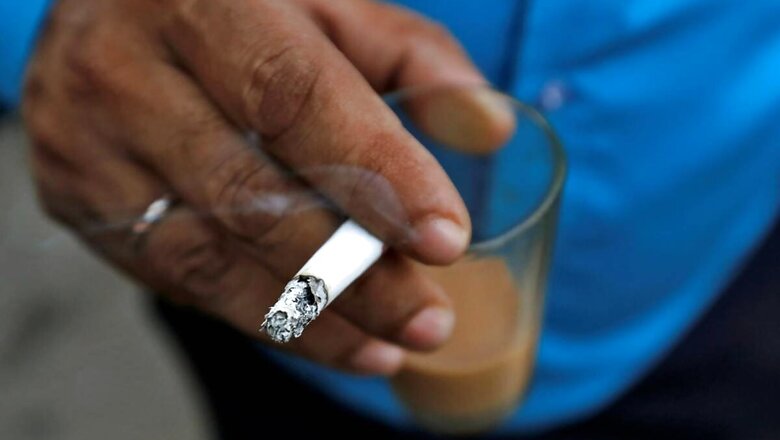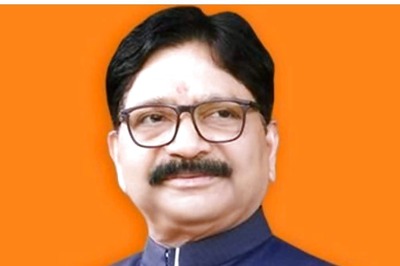
views
Preventive health care, immunity and hygiene have attained centre-stage in the backdrop of the COVID-19 pandemic, which has wreaked havoc across the world, posing a major threat to public health with a deep impact on the overall physical and mental health of people, individually and collectively. Added to the agony is the COVID-induced financial burden on the infected person and their family; and the economy.
India did quite well to curb the first wave of COVID-19 and bring the epidemic situation under control. We focused on strengthening health infrastructure and health equipment such as PPEs (personal protective equipment), medicines, ventilators and most importantly on developing and manufacturing indigenous vaccines.
But the fight against COVID-19 does not stop here. After showing a declining trend till early January this year, coronavirus has reared its ugly head once again and more menacingly, in the form of new variants. So far, coronavirus has infected over 2.57 crore people of which more than 2.23 crore people have recovered. The disease has claimed 2.87 lakh lives across India to date.
Given that these variants are more lethal and contagious, and the risk of the third wave is inevitable, the cases are likely to surge, unless we follow strict protocols. The central and state governments have to urgently focus on public health policy to ensure people have a long and healthy life. Coronavirus basically infects lungs and therefore, among the measures required to prevent a significant number of life-threatening cases, tobacco control perhaps assumes importance. Researched evidences show that the long-term impact of tobacco-related diseases on health infrastructure can be profound.
Often, the most disadvantaged populations are the hardest hit, as they have to shell out their meagre earnings for hospitalization, medicines and rehabilitation etc. Add to this, the indirect costs related to loss of livelihood. Further, tobacco users are at a much higher risk of falling sick and dying prematurely due to tobacco-related non-communicable diseases (NCDs), such as cancer, heart attacks, and respiratory diseases. Smoking not only adversely impacts the one who smokes, but others too.
Studies from several countries have shown how smoking increases the risk of suffering severe outcome of COVID-19. Experts have said that smoking increases the risk of intensive care, need for mechanical ventilation and even death due to COVID-19. There is no excuse for inaction because the tobacco epidemic is entirely preventable.
The government on its part has shown its commitment by proposing Cigarettes and Other Tobacco Products Act (COTPA), 2003 amendments, which envisage among various provisions banning designated smoking areas (DSAs), a ban on sale of loose cigarettes and other tobacco products as well as surrogate advertisements that are aimed at impressionable minds.
Health Minister Dr Harsh Vardhan is sensitive towards preventive health strategy, and has been taking several steps in this direction, ban on spitting last year being a major one. It is pertinent to mention here that one of the most effective preventive long-term strategies to break the chain of transmission of COVID-19 is to ban the public DSAs in airports, hotels, bars and guest houses allowed under the COTPA 2003. These zones, if not properly ventilated, can turn into ‘hotspots’ for COVID transmission, especially when no social norms are followed.
Smokers also have a higher risk of getting infected with the deadly coronavirus due to a weaker immune system, and they are more likely to develop severe symptoms due to COVID-19. In the process, they also become super spreaders, thus putting others’ life at risk. COVID-19 spreads through air when people infected with coronavirus cough, sneeze or spit. A person needs to inhale only a few germs to get infected.
Smoke can also be deadly for non-smokers too. In fact, exposure to second-hand smoking also results in adverse health outcomes. As many as 12 lakh deaths are attributed to passive smoking annually. That is why, undoubtedly, a complete ban on smoking in public places and strict enforcement of anti-smoking laws will yield enormous public health gains. To put in simple words, laws can have deterrent impact on the violators as we presume most people in a civilised society are law-abiding.
Moreover, community participation and awareness are important where citizens can claim a right to a healthy environment and question a smoker: ‘Isn’t your smoking injurious to my health?’
Besides preventing non-communicable diseases (NCDs), controlling smoking has another major advantage—combating communicable diseases like tuberculosis (TB). The World Health Organization has clearly stated that tobacco smoking substantially increases the risk of TB by more than two and a half times, besides increasing the risk of death from TB. More than 20 per cent of global TB incidences may be attributed to smoking. It is time tobacco prevention measures take the shape of a movement, along the lines of ‘Swachh Bharat Abhiyan’ or ‘Har Ghar Jal’ campaign, so that we could move towards a healthier state. There has never been a more pressing time to check smoking than now.
Read all the Latest News, Breaking News and Coronavirus News here. Follow us on Facebook, Twitter and Telegram.




















Comments
0 comment